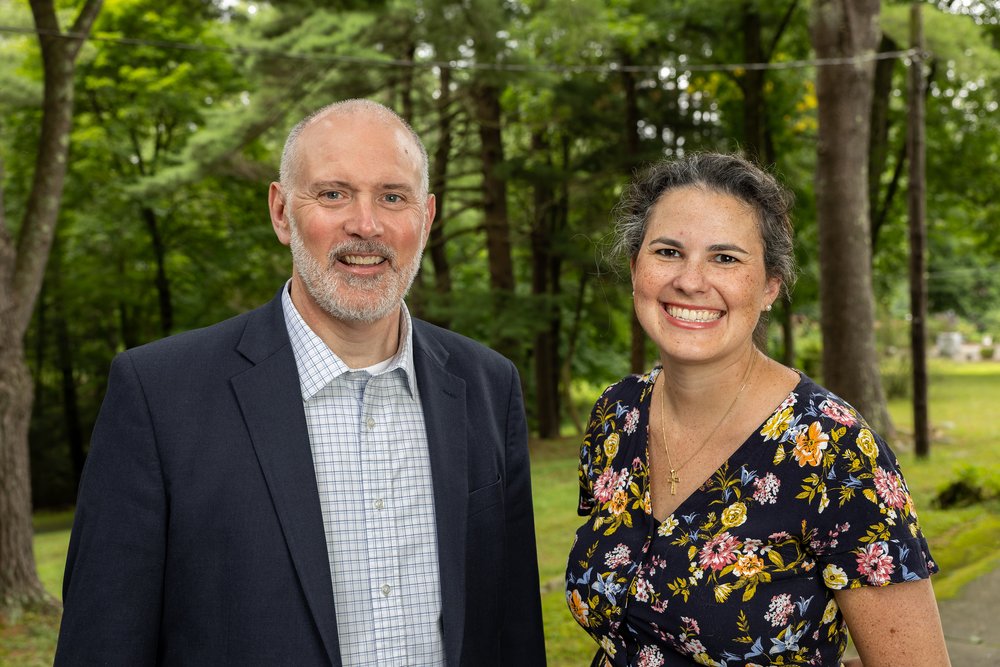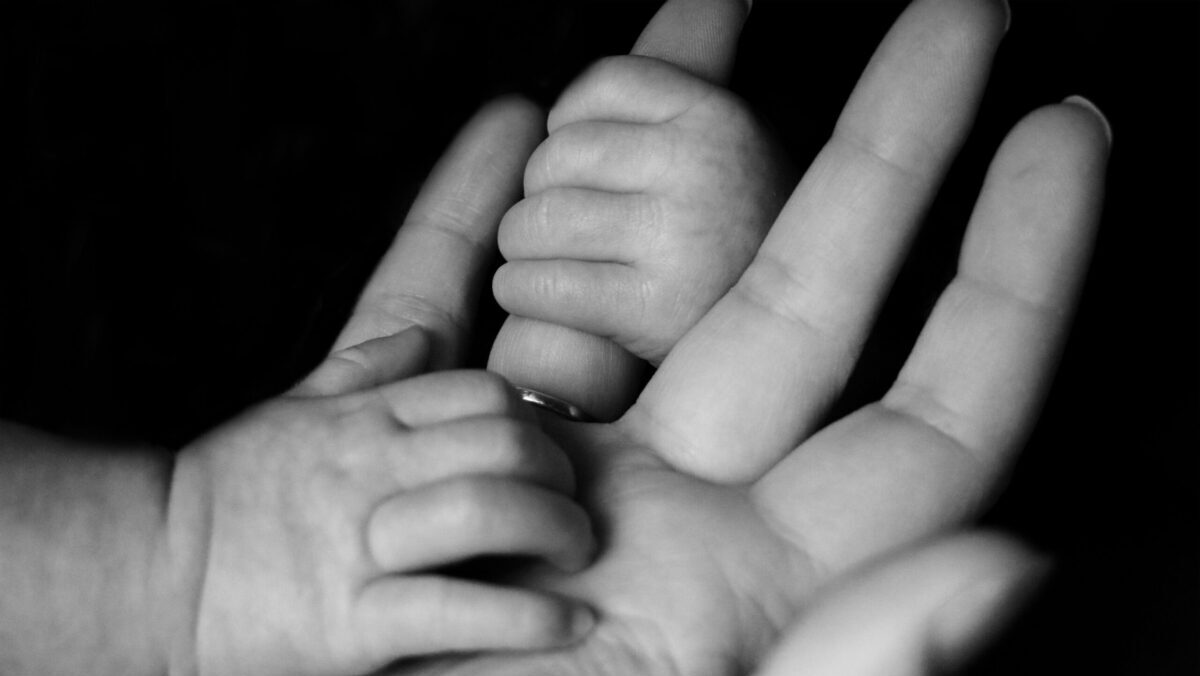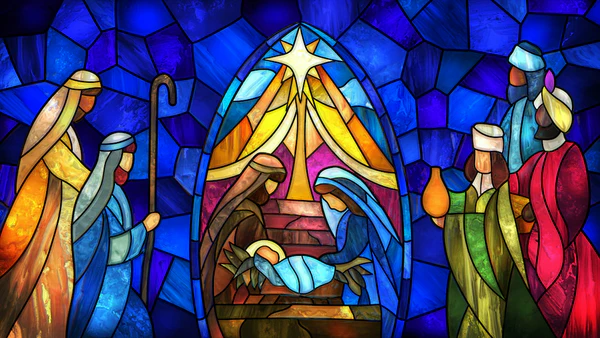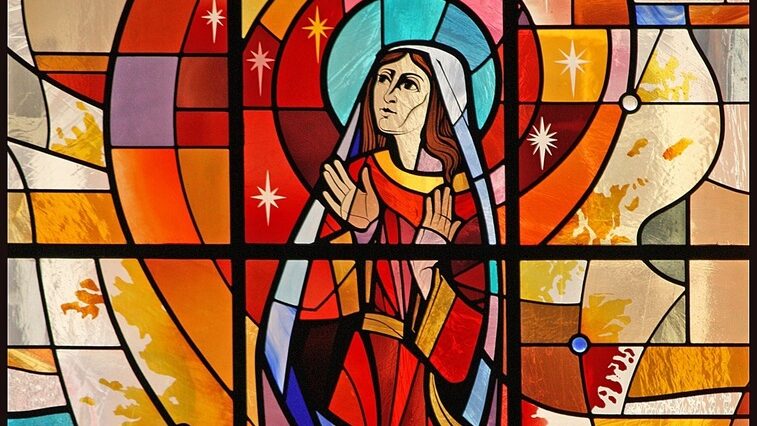Some Christians who consider themselves more “pro-life” than just anti-abortion have had enough.
Disenchanted with Donald Trump and no longer home in a party that this summer abandoned its plank opposing abortion, this subset of highly engaged Christian voters has been turning to the eight-year-old American Solidarity Party.
“The weird way that the two-party system here has grown means that you kind of have to pick which vulnerable person you want to help protect. And a lot of people just get tired of that,” said Lauren Onak, the party’s vice presidential candidate, who is a stay-at-home mom and self-described “community organizer” from a Boston suburb.
Onak cites both “the unborn” and “people living in Gaza” as examples of concerns close to their hearts that neither major party consistently defends.
Fast-growing
Discussed since 2011 but only legally incorporated in 2016, the party calls itself “the fastest-growing political party in the United States.” In its first presidential cycle, its candidate drew 6,697 votes, then 42,305 in the 2020 presidential campaign. This year, the party is on the ballot in six states and has write-in access in the majority.
Peter Sonski, the party’s presidential candidate, is a highly involved Catholic, as is Onak. While the party has attracted some high-profile evangelical Christian boosters, many of the most enthusiastic supporters of the party are Catholic, and the party’s platform closely resembles the Vatican’s guidance on public policy issues and Catholic social teaching.
Pope Francis has called both Kamala Harris and Trump “against life” for their stances on abortion and migration, respectively.
Sonski, a graduate of The Catholic University of America, worked for eight years as director of communications at the Basilica of the National Shrine of the Immaculate Conception, and previously served as assistant editor at the National Catholic Register, owned by EWTN News.
The father of nine, who lives in Connecticut, is against the death penalty and assisted suicide and has served in local office for more than 12 years, most recently on his local board of education.
American Media podcast host Gloria Purvis, a former host of an EWTN radio show, has educated Catholics about the American Solidarity Party.
“It’s no secret that Harris-Walz is pro-abortion,” she told RNS. “That’s not news, but what is news to many is that Trump-Vance support abortion and IVF and a host of other anti-life positions. What’s also news to people is that there is a third party that doesn’t support any of that.” Purvis has also said the “racist rhetoric” of the Trump campaign undermines “a culture of life.”
Platform
The ASP platform opposes abortion, in-vitro fertilization, the death penalty, euthanasia, no-fault divorce, same-sex marriage, gestational surrogacy, pornography, cash bail, federal subsidies for fossil fuels, highway expansion, most military intervention and American arms sales to foreign countries. It promotes guaranteed universal health care, labor unions, “generous” asylum policies, a pathway to citizenship for undocumented immigrants who arrived in the U.S. as children and subsidies for Indigenous land restoration.
Its candidates speak the language of Catholic social teaching, and Onak’s underlined the importance of local political races. “The Solidarity approach is building up communities,” she said. “It’s based on the principle of subsidiarity; the people closest to a decision should be stakeholders in making that decision.”
Onak emphasized that, while driven by Christian thinking, the party embraces religious pluralism and is not a Christian nationalist movement. Instead its leaders apply Christian ideas “to policy in ways that can help everyone,” noting that “everybody comes with their perspective.”
Six party members are currently in local elected office, and beyond the Sonski-Onak ticket, 13 are running for office: three for the U.S. Senate, one for the U.S. House of Representatives, two for state legislatures, two for other state positions, and five for the Lombard library board in Illinois.
Of those, only two are women. Onak said that while many couples are involved in the party, often only one spouse runs for office, adding, “There can be for women, at least in my experience, a sort of intimidation around politics or thinking that you need to be an expert to jump in,” a misconception she is working to dispel.
Onak voted for the American Solidarity Party presidential candidate in 2020, but first logged on to a party meeting shortly after the Jan. 6, 2021, insurrection at the U.S. Capitol.
Having grown up in a Democratic family, she said she became a single-issue abortion Republican voter in college. But witnessing the events of Jan. 6 and their fallout “and realizing that people had really stopped communicating and trying to see things from each other’s point of view,” Onak said, “I felt like I needed to contribute to the political world in a way that felt positive, that felt in line with my values.”
“I felt like my children would ask me, what did you do to make things better?” she said, “and I wanted to have an answer.”
Dissatisfaction
While Catholics have taken the most prominent roles in the party, particularly this election cycle, some Protestants have become vocal advocates. Matthew Martens, a lawyer and author of the 2023 book “Reforming Criminal Justice: A Christian Proposal,” has written several articles, many social media posts and appeared on a Christianity Today podcast speaking about his support for the party.
Martens said his affiliation as a Southern Baptist may cause people to draw certain political conclusions; he’s largely voted Republican, but never for Trump. “I believe based on the teaching of Scripture that the fundamental obligation of government is to protect innocent life at all its stages,” Martens said. “When I have the major party candidates of both parties disclaiming that obligation, I don’t think I can, as a moral matter, vote for them,” he said.
Martens occasionally disagrees with the party on tactical issues but wholeheartedly supports its goals. “I haven’t found Protestants who are put off by the platform merely because it has a close alignment with Catholic social teaching.”
Sonski and Onak are not the only faith-based alternative candidates inspired by dissatisfaction with the two major parties. Running to the left of the Democrats is Cornel West, the Dietrich Bonhoeffer professor of philosophy and Christian practice at Union Theological Seminary, who is on the ballot in 16 states, according to his campaign.
West’s campaign says his campaign began during a “national crisis of moral bankruptcy and spiritual obscenity driven by a derelict duopoly of both major parties that equally places profits over people and the planet.” His vice presidential candidate, Melina Abdullah, is Muslim.
Also running on the left is Claudia De la Cruz, of the Party for Socialism and Liberation, which is on the ballot in 18 states. De la Cruz, a graduate of Union Theological Seminary and former pastor of a United Church of Christ church, cites liberation theology as the inspiration for her organizing work.
In an incredibly close race between Trump and Harris, the votes that go to third-party candidates in swing states could decide the race. De la Cruz and West are on the ballot in Wisconsin, and West is also on the ballot in Georgia, North Carolina and Michigan.
According to Onak, taking votes from the major parties is part of the long-term strategy of the party because she sees it as a vehicle to effect policy change. “If every pro-lifer voted for us this campaign, the GOP would definitely think twice about having taken out language from its platform, which they did, protecting the unborn,” she said.
But their policy supporting direct cash payments to families has gained traction in both parties, she said, explaining they hope to drive support for their other policy priorities.
Podcast host Purvis said her hope for Catholics is that “we can again not be consumed by idolatry and seduced by temporal power and choose to follow the risen Christ who’s often found in the face of the poor and the oppressed,” and that “Catholics will not be beholden so much to parties that don’t speak for them.”
She also hopes that “the American Solidarity Party is able to change the conversation and the outlook of American politics writ large.”
Ultimately, Onak said that seeing people become reengaged and hopeful about the political process has been the best part of the campaign.
“We want to give you someone to vote for and not against, and we think candidates should earn your vote, not scare you enough that you vote for their opponent,” she said. “We really want people to be able to walk away from the ballot box on election day feeling good about their choice.”
EDITOR’S NOTE — This story was written by Aleja Hertzler-McCain and originally published by Religion News Service.






